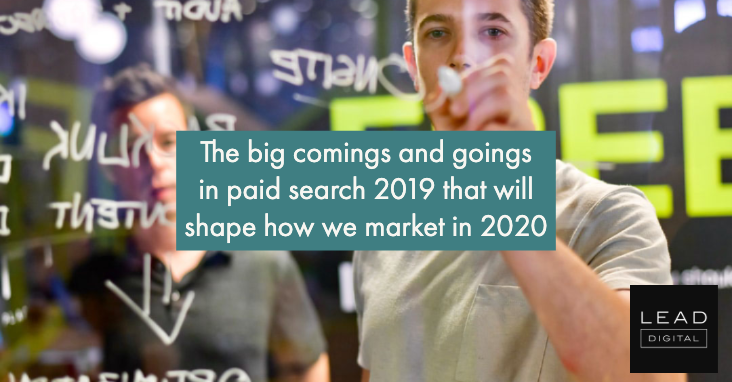 Automation, full-funnel campaigns, shoppable ads and privacy fueled PPC changes in 2019.
Automation, full-funnel campaigns, shoppable ads and privacy fueled PPC changes in 2019.
In 2019, Google shook up mobile search results pages with a redesign that introduced black “Ad” labels to text ads and favicons for organic listings. It also caused a stir in notifying some advertisers it would start handling campaign management for them. Automation continued to be a major theme. This year, it was reflected most prominently in Google’s product announcements aimed at owning the funnel with campaigns that extend across properties. Adjusting to new privacy restrictions and expectations also took on new urgency and will have a significant impact on search marketing in the year to come.
Bing celebrated its first decade. Ten years on, still, Bing’s market share doesn’t rival that of Google and likely never will – but perhaps that’s beside the point now. The newly-branded Microsoft Advertising doesn’t have to carry 90+% of its parent company’s revenues like rivals Facebook and Google’s ad businesses, and it began exhibiting more of an independent streak in 2019 rather than simply aiming to keep up with new Google Ads features (though, it’s still doing that, too).
These were the big things we said goodbye and hello to in paid search this year that will inform our campaigns in 2020.
We said goodbye to:
Average position metric. This old-timer rode off into the late fall sunset. The retirement of average position was more of a process headache than a loss in actionable data. Advertisers had months to shift their bidding strategies, reports and scripts to rely on the new position metrics that Google introduced in late 2018. Frederick Vallaeys of Optmyzr offered a history of the blurring of average position as an informative metric. The new impression share-based position metrics instead better indicate how often your ads appear above the organic listings.
Microsoft also introduced the new position metrics but said it is holding on to average position reporting. For now, anyway.
Accelerated delivery. Search and Shopping campaigns no longer have the option to have their ads serve as early and often as possible until the day ends or their daily budgets deplete. Accelerated delivery was a fan favorite for Shopping and brand campaigns with uncapped budgets, but Google said many still used it with capped daily budgets and that “this method can increase CPCs due to increased competition early in the day, or unintentionally spend most of your budget in earlier time zones.” Now, campaigns are optimized through standard delivery with Google’s algorithms based on the campaign’s goal, bidding strategy as well as contextual signals. – Read more



